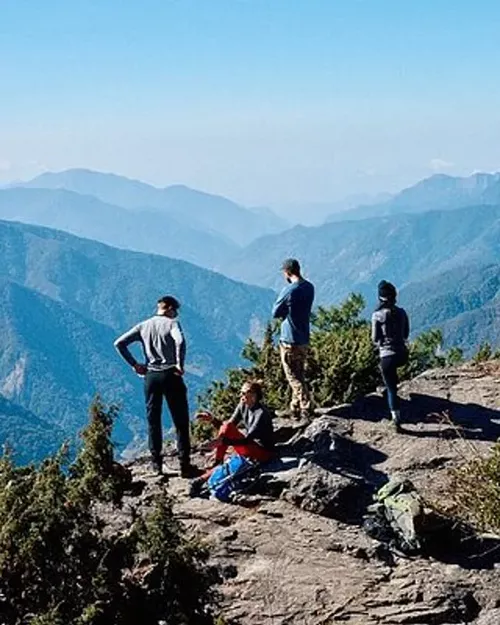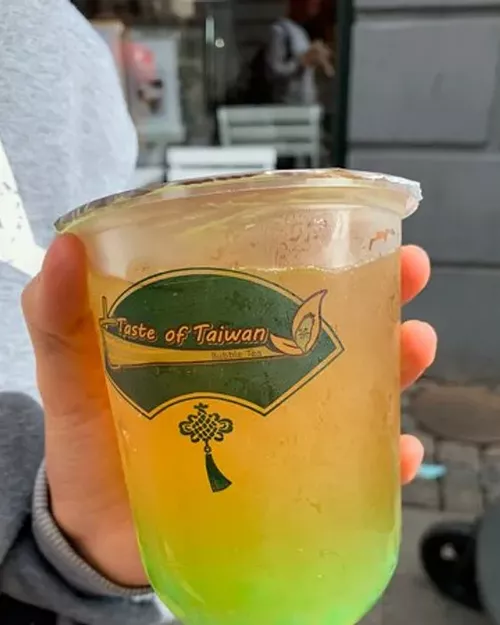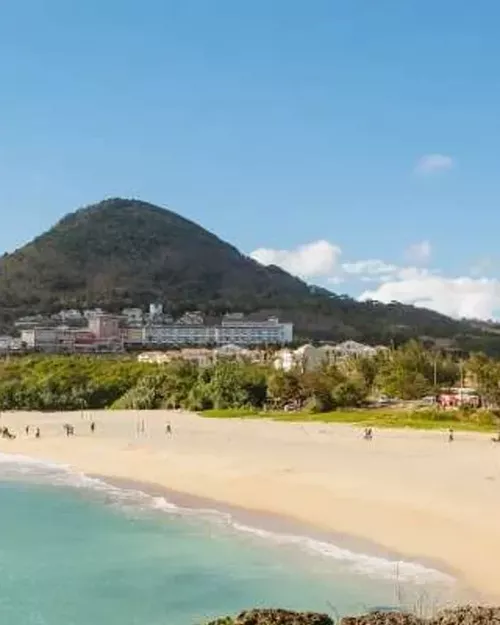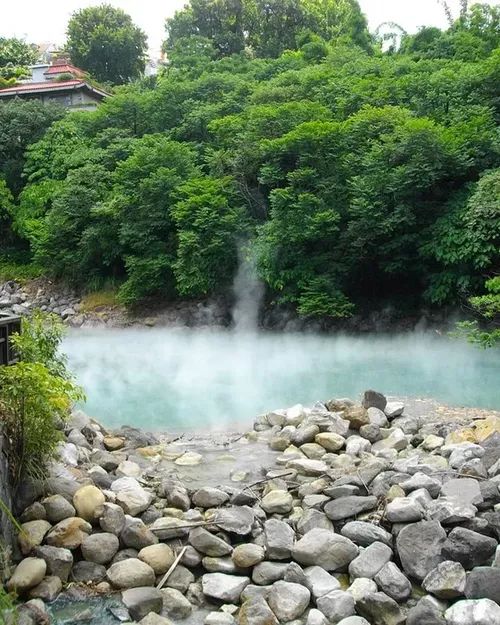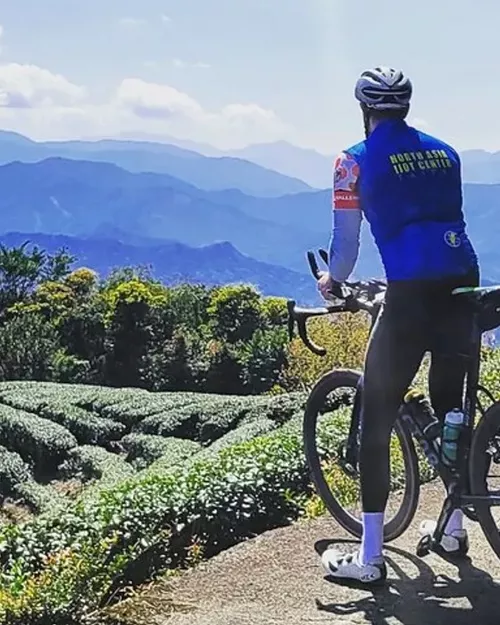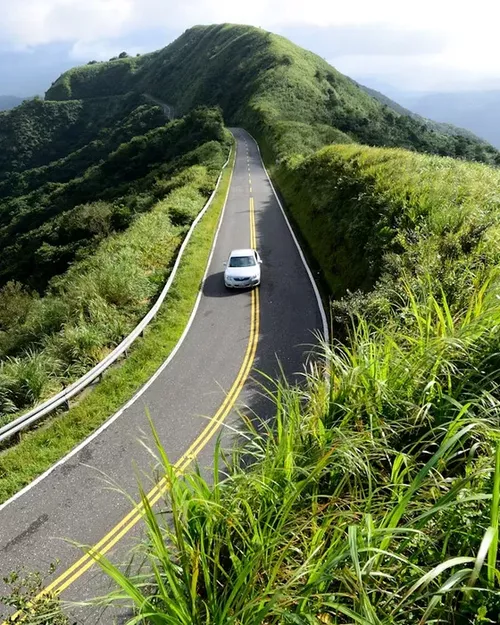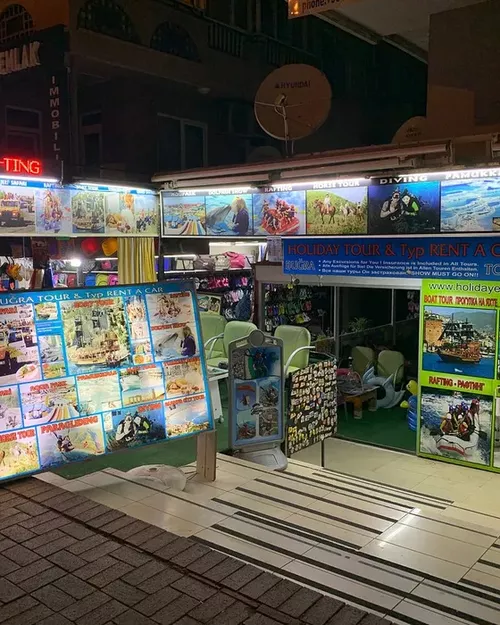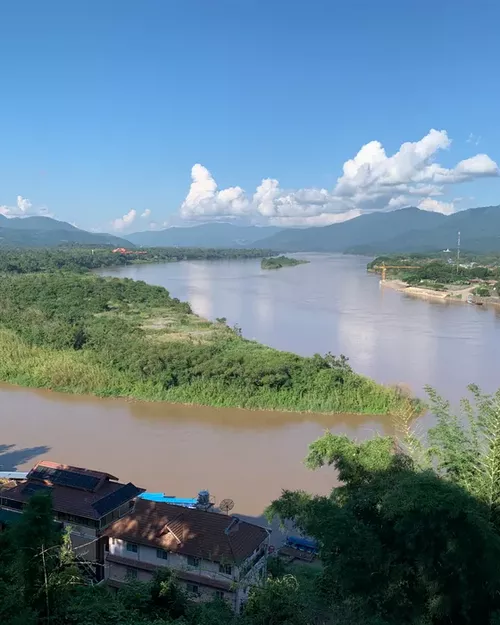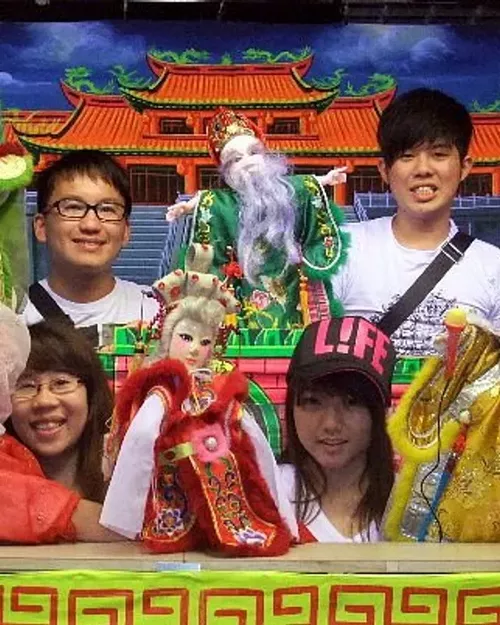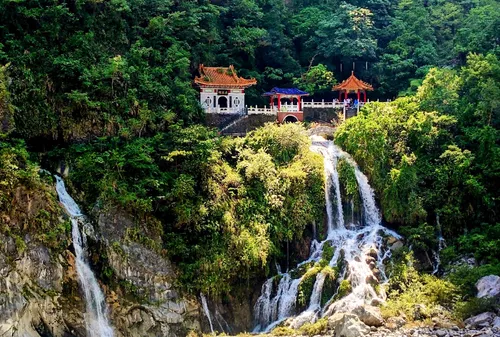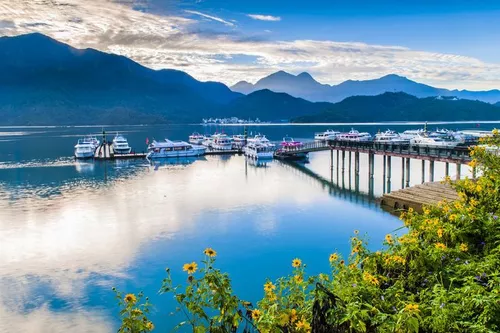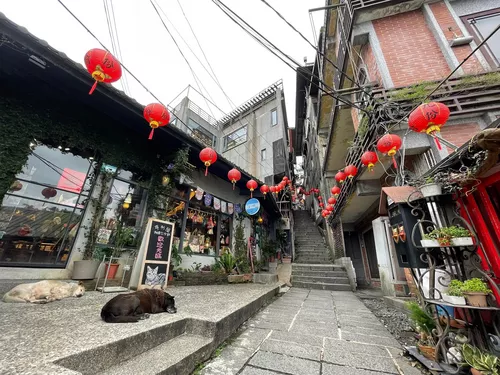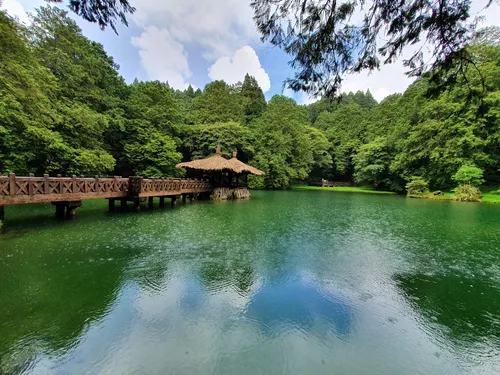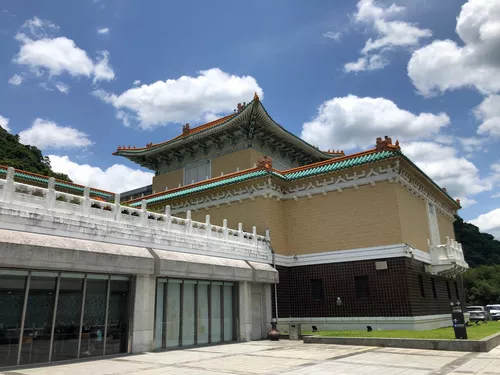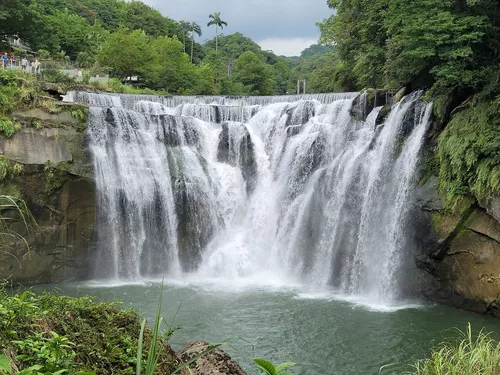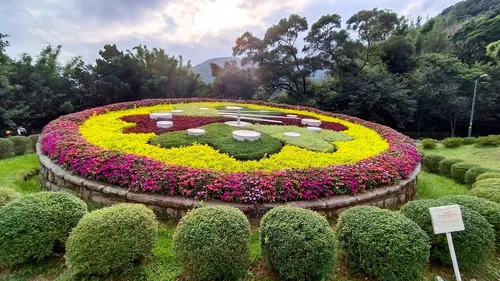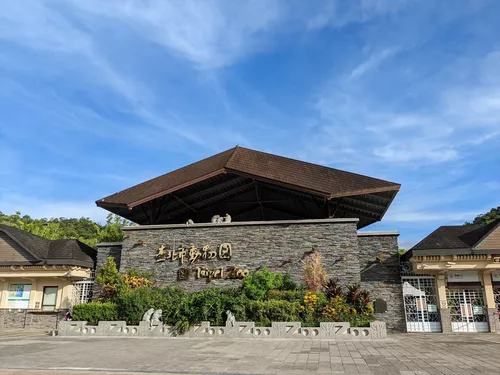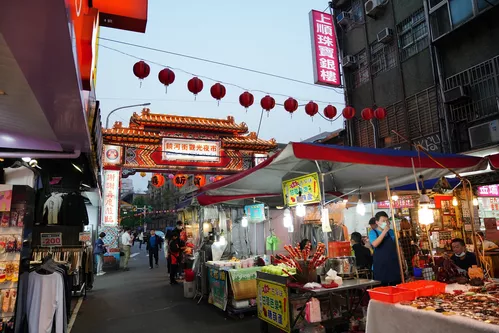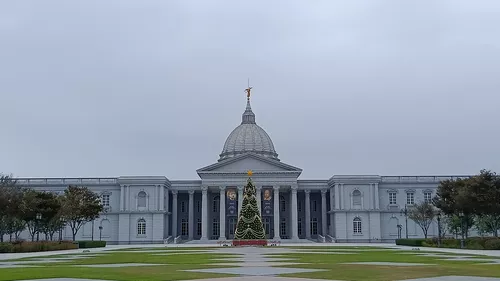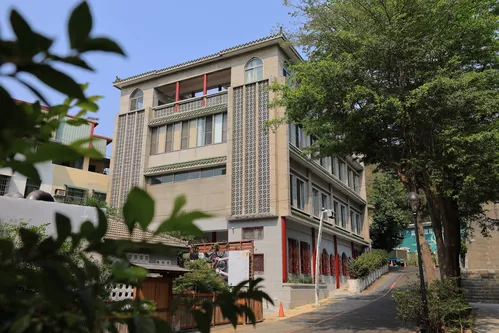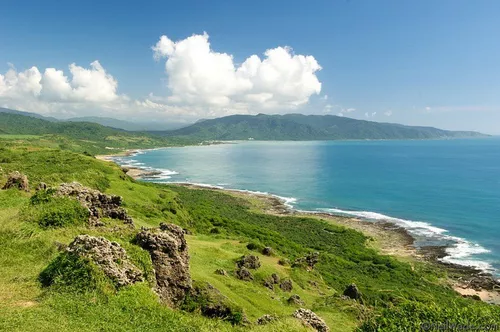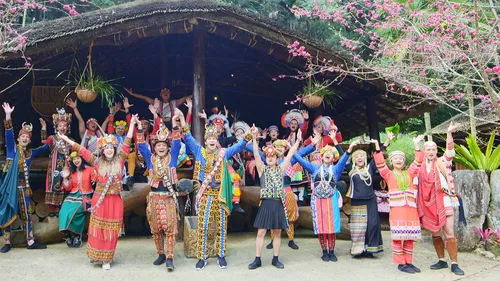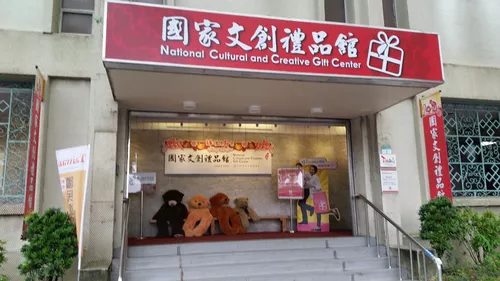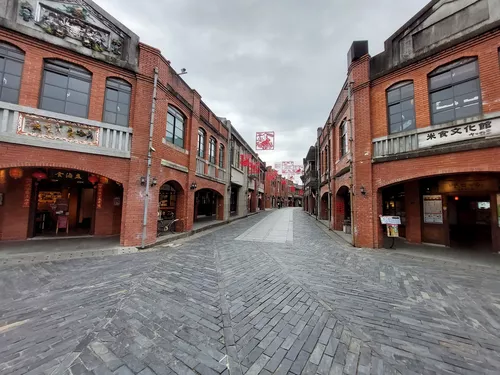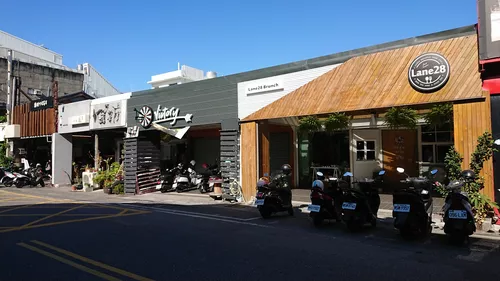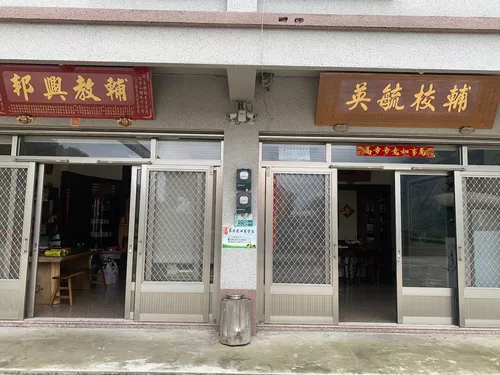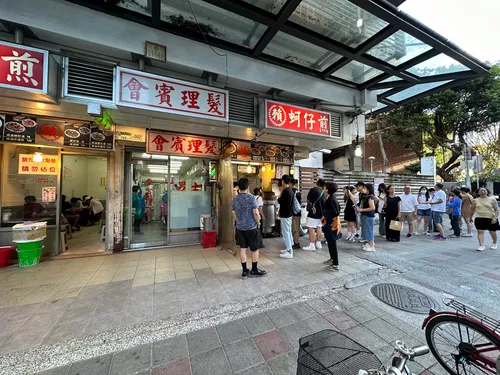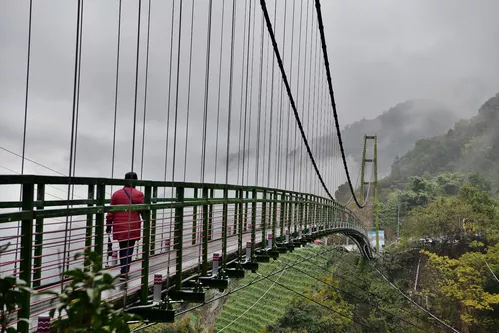Taiwan is popular for
Taiwan in next 3 month
Weather in Taiwan
December in Taiwan is cool with occasional rain showers and moderate air quality.
Usual trip duration
A 5-7 day trip to Taiwan allows you to explore the bustling city of Taipei, visit the stunning Taroko Gorge, relax in the hot springs of Beitou, and experience the vibrant night markets. You can also take a day trip to the beautiful Sun Moon Lake for a serene escape.
Moderate to expensive
Ideas To Plan Your Trip
Places To Visit
Places To Eat
Frequently Asked Questions about Taiwan
The best time to visit Taiwan is during the shoulder seasons: April to May and September to November. During these months, the weather is generally pleasant with comfortable temperatures and lower rainfall. Spring (April-May) boasts blooming flowers and comfortable sightseeing weather. Autumn (September-November) provides clear skies, warm temperatures, and stunning foliage, making it ideal for outdoor activities and exploring Taiwan's scenic landscapes. Avoid the typhoon season (July-September) if you're not a fan of heavy rain and potential travel disruptions. Winter (December-February) can be mild in the south but cooler in the north, with occasional rain. However, it’s also a good time to experience hot springs and winter festivals. Summer (June-August) is hot and humid, but it's also a great time to enjoy the beaches and water parks.
Taiwan boasts a diverse range of attractions, from bustling cityscapes to stunning natural landscapes. Here's a list of some must-visit places:
| Attraction | Highlights |
|---|---|
| Taipei 101 | Once the world's tallest building, offering panoramic city views and high-end shopping. |
| National Palace Museum | Home to an extensive collection of Chinese art and artifacts. |
| Taroko Gorge National Park | A stunning natural wonder with marble cliffs, hiking trails, and breathtaking scenery. |
| Sun Moon Lake | Taiwan's largest lake, offering boat rides, cycling, and scenic views. |
| Jiufen Old Street | A charming mountain village with traditional teahouses, narrow streets, and stunning coastal views. |
| Alishan National Scenic Area | Famous for its tea plantations, cherry blossoms, and stunning sunrises. |
| Yangmingshan National Park | A volcanic landscape with hot springs, hiking trails, and stunning views of Taipei. |
Taiwan is easily accessible by air, with two major international airports. Here are the details:
| Airport | Details |
|---|---|
| Taiwan Taoyuan International Airport (TPE) | Located near Taipei, it's the main international gateway, serving numerous airlines and destinations worldwide. You can easily reach Taipei city center via the Airport MRT, buses, or taxis. |
| Kaohsiung International Airport (KHH) | Located in southern Taiwan, it offers international and domestic flights. The Kaohsiung MRT provides convenient access to the city center. |
Most international visitors arrive at Taiwan Taoyuan International Airport (TPE). From there, you can take the Airport MRT, a comfortable and efficient train, to reach Taipei Main Station in about 35 minutes. Buses and taxis are also readily available, offering alternative transportation options to the city center and other destinations in Taiwan.
Taiwan offers a wide array of activities to suit every interest. From exploring vibrant cities to immersing yourself in nature, there's something for everyone:
- Hiking: Explore the numerous trails in Taroko Gorge, Yangmingshan, and Alishan.
- Cycling: Enjoy scenic bike rides around Sun Moon Lake or along the coastal routes.
- Hot Springs: Relax and rejuvenate in one of Taiwan's many hot springs, such as Beitou or Wulai.
- Food Tours: Indulge in Taiwan's diverse culinary scene, from night market snacks to Michelin-starred restaurants.
- Cultural Experiences: Visit temples, museums, and historic sites to learn about Taiwan's rich culture and history.
- Shopping: Explore the bustling night markets and department stores for unique souvenirs and local products.
- Water Sports: Enjoy swimming, surfing, and other water activities along Taiwan's beautiful coastline.
While Taiwan itself offers a wealth of attractions, its strategic location also makes it a convenient base for exploring nearby destinations. Here are a few popular options:
| Destination | Travel Time | Highlights |
|---|---|---|
| Hong Kong | 1.5 - 2 hours flight | A vibrant city with stunning skyline, delicious cuisine, and world-class shopping. |
| Japan (Tokyo) | 3 - 4 hours flight | A blend of ancient traditions and modern technology, offering unique cultural experiences and culinary delights. |
| South Korea (Seoul) | 2.5 - 3 hours flight | A dynamic city with historical palaces, trendy fashion districts, and delicious street food. |
| Philippines (Manila) | 2 - 2.5 hours flight | A country with beautiful beaches, stunning landscapes, and rich cultural heritage. |
Taiwan is a shopper's paradise, offering everything from high-end luxury goods to unique local products. Here are some popular shopping destinations:
| Location | Specialty |
|---|---|
| Taipei 101 Mall | Luxury brands, high-end fashion, and designer goods. |
| Ximending | Trendy fashion, street style, and entertainment. |
| Shilin Night Market | Street food, souvenirs, clothing, and accessories. |
| Eslite Bookstore (various locations) | Books, stationery, art supplies, and cultural products. |
| Wufenpu Garment District | Wholesale clothing, fashion accessories, and discounted prices. |
Taiwan is renowned for its culinary scene, offering a diverse range of flavors and dining experiences. Here are some recommendations:
| Category | Restaurant/Location |
|---|---|
| Night Markets | Shilin Night Market, Raohe Street Night Market, Ningxia Night Market (for various street food). |
| Din Tai Fung | World-famous for its delicious soup dumplings (xiaolongbao). |
| Modern Toilet Restaurant | A novelty restaurant with a quirky toilet-themed decor and menu. |
| Addiction Aquatic Development | A seafood market with various restaurants and bars. |
| Ice Monster | Known for its shaved ice desserts with various toppings. |
The official currency of Taiwan is the New Taiwan Dollar (NTD), also often represented as NT$. Credit cards are widely accepted in major cities and tourist areas, but it's always a good idea to carry some cash, especially when visiting smaller towns or night markets. ATMs are readily available throughout Taiwan, making it easy to withdraw NTD. Currency exchange services are available at airports, banks, and hotels.
Be aware that while larger establishments readily accept credit cards, smaller shops, night market vendors, and some local restaurants may prefer or only accept cash payments. Having a mix of payment options ensures a smoother experience during your travels. It's advisable to check the current exchange rates before your trip to manage your budget effectively.
The official language of Taiwan is Mandarin Chinese. However, Taiwanese Hokkien is also widely spoken, particularly among the older generation. English is commonly spoken in tourist areas, hotels, and restaurants, especially in larger cities like Taipei. Many signs are also bilingual, making it easier for English-speaking tourists to navigate. Learning a few basic Mandarin phrases can enhance your travel experience and show respect for the local culture. Knowing greetings like 'Ni hao' (hello) and 'Xie xie' (thank you) can go a long way in making interactions more pleasant.
While not everyone speaks English fluently, most Taiwanese people are friendly and willing to help, often using gestures or translation apps to communicate. Don't hesitate to ask for assistance if you need it. Tourist information centers are also a great resource for maps, directions, and assistance in English. Preparing with a translation app or phrasebook can be particularly useful when venturing off the beaten path.
The standard voltage in Taiwan is 110V, and the frequency is 60Hz. The power plugs are typically Type A and Type B, which are two-prong and three-prong flat pin plugs, respectively. If your electronic devices use a different voltage or plug type, you will need to bring a voltage converter and/or plug adapter. Many hotels provide converters and adapters for guests, but it's always a good idea to bring your own to ensure you can use your devices without any issues.
Checking the voltage requirements of your devices before your trip can save you from potential damage or inconvenience. Most modern electronic devices, such as laptops and smartphones, are designed to handle a range of voltages (100-240V), but it's always best to verify. If you're traveling from a country with a 220-240V standard, a voltage converter is essential for using devices like hair dryers, electric shavers, or other appliances that are not dual-voltage.
Tipping is not a common practice in Taiwan, and it is generally not expected in most situations. You do not need to tip in restaurants, taxis, or for other services. However, it is becoming increasingly common for higher-end hotels and restaurants to automatically add a 10% service charge to the bill. In such cases, further tipping is not necessary. For exceptional service, you can round up the bill slightly, but it is not obligatory. Tour guides and drivers may appreciate a tip for their services, especially if they have provided an excellent experience, but it is entirely at your discretion.
While tipping is not ingrained in Taiwanese culture, showing appreciation through a genuine thank you or a positive review can be equally meaningful. The focus is more on providing good service and building relationships rather than expecting monetary rewards. Being aware of the local customs will help you navigate social interactions respectfully during your visit.
Understanding and respecting local customs can greatly enhance your experience in Taiwan. Here are some etiquette tips to keep in mind: When meeting someone, a slight bow or nod is a polite greeting. Business cards are often exchanged with both hands. Avoid sticking your chopsticks upright in a bowl of rice, as it resembles incense offerings for the deceased. When visiting temples, dress modestly and remove your shoes if required. Avoid loud talking or boisterous behavior in quiet or religious places. Using both hands when giving or receiving something is considered polite. Public displays of affection are generally less common than in Western cultures. When using public transportation, refrain from talking loudly on your phone. Being punctual is appreciated in both business and social settings.
Showing respect for elders is highly valued in Taiwanese culture. When dining, it's customary to wait for the eldest person to start eating before you do. When giving gifts, avoid giving clocks or white items, as they have negative connotations. Learning a few basic Mandarin phrases, such as 'thank you' (xièxiè) and 'excuse me' (duìbùqǐ), can be greatly appreciated by locals. Being mindful of these cultural nuances can help you build positive relationships and make your visit to Taiwan more enjoyable.





